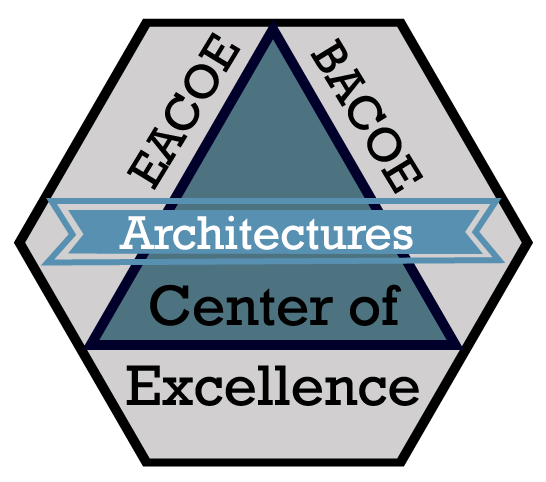Soft Skills For Enterprise Architects
Originally posted by John Spacey, February 14, 2013
So you're a technical guru and you want to be an Enterprise Architect. You're never going to be successful without these 11 critical soft skills.
1. Communication skills
EAs must communicate the benefits of architectural approaches simply and clearly.
Enterprise architecture needs to be communicated to top executives, business management, IT management, solution architects, technical architects, SMEs, partners and customers. EAs need to adapt their vocabulary and style for each situation.
They must sell enterprise architecture across the organization — developing compelling and memorable value propositions and advertising them effectively.
2. Presentation and public speaking skills
Most EAs are expected to give presentations on a fairly regular basis. EAs need to be comfortable speaking to large audiences, top executives, business and technical leaders.
EAs should be adept at representing complex ideas with simple visuals. Ideally, they should be capable of doing this on the fly in white board sessions.
EAs should also be good at adapting presentations to the expectations and background of their audience. Good presenters find a way to keep their audience awake, invoke participation and deliver a clear and memorable message.
3. Rapport building and networking
Enterprise architecture breaks down silos and finds common solutions across the enterprise. In order to have any chance of actually succeeding at this — EAs must network and build rapport with business and technology leaders, SMEs and influencers.
Ideally, enterprise architects should be amongst the most connected individuals in the company.
4. Innovation and creativity
EAs are commonly required to find solutions to a wide range of business and technology problems.
A good architect has no interest in reinventing the wheel and will seek standardized solutions for problems. In many cases, no standard solution exists — the EA is expected to quickly determine a simple, sensible solution.
EAs may be called upon to find solutions across a wide range of technologies and business domains. Often solutions have budget, time or operational constraints. It takes a considerable amount of creativity to be a good enterprise architect.
5. Art of influencing
Some people sit around wishing things were different and moaning there is nothing they can do about it.
Influencers are different — there is a positive energy about them. They generate a buzz about the things they want to change. They have the ability to gain support, inspire others, create relationships — but more importantly they engage people's imaginations.
The mandate of enterprise architecture is ambitious — to bridge the gap between the business and IT — to break down silos and agree on common solutions. It is difficult to imagine getting any of this done without influencing skills.
6. Leadership skills
EAs may be asked to lead business and technology programs, projects, workshops and initiatives. They must inspire confidence and garner respect from business and technology stakeholders.
Leadership also requires planning, supervision, coaching and delegation skills.
7. Decision making
Decision making can be hard. Decisions have consequences —and decision makers must be willing to take on responsibility.
EAs are frequently asked to make decisions about technical approaches. The ability to make clear, consistent decisions is key to EA success.
Decision making requires skills such as fact finding, big picture thinking, creativity, analytical ability, emotional intelligence and assertiveness.
8. Negotiating skills
Enterprise architecture involves building common solutions across organizational, business and technological silos. Differences of opinion are the rule not the exception.
Enterprise architects must find common ground between stakeholders and determine approaches that have a good chance of achieving stakeholder support.
Implementation and governance of enterprise architecture involves constant negotiation. Choosing the ideal architectural path needs to be balanced with practical concerns such as budget and time to market.
9. Research skills
Enterprise architecture spans business, system, data and technical architecture. It is a lot to know — and both business and technology are constantly changing.
EAs need to be able to quickly locate and process information.
10. Managing time and pressures
Being able to manage time and prioritize tasks is important for most professions. It is particularly important for EAs because enterprise architecture involves long term strategic planning.
EAs can not be stuck in reactive mode — they need to balance daily pressures with the need to focus on long term priorities and goals.
11. Assertiveness
Avoiding conflict at any cost might be perfectly all right for some professions — enterprise architecture is not one of those professions.
EAs need to take initiative, question approaches and point out mistakes. A good EA knows it is not possible to please all the people all the time and is seldom reluctant to speak her mind.
Summary
Quite a lot is expected of Enterprise Architects. It is not an easy profession to break into.
The good news is that soft skills can be learned, practiced and perfected. Sure, natural talent helps — but don't let anyone convince you it's something you need to be born with.
If you've managed to become a technical guru — soft skills should be a breeze.
Soft Skills For Enterprise Architects Originally posted by John Spacey,
Category
- Agility
- Architecture Models
- Architecture Views
- Artificial Intelligence
- Assemble to Order
- BTP
- Benefits
- Big Data
- Bill of Materials
- Book
- Business Architect
- Business Architecture
- Business Architecture Framework
- Business Architecture Participants
- Business Architecture Tools
- Business Capability
- Capabilities
- Capability Ability
- Certification
- Certification Levels
- Certification Mistakes
- Change Management
- Checklist
- Cloud
- Cloud Decommission
- Coding
- Communication
- Competition
- Complexity
- Confirmation Bias
- Consulting
- Cybersecurity
- Data
- Data Architecture
- Data Lake
- Data Modeling
- Data Sludge
- Data Swamp
- Differentiators
- Digital Transformation
- Distance Learning
- Enterprise Architect
- Enterprise Architecture
- Enterprise Architecture Framework
- Enterprise Architecture Participants
- Enterprise Architecture Tools
- Evaluation Checklist
- Evaluation Criteria
- Event Model
- Experiences needed

